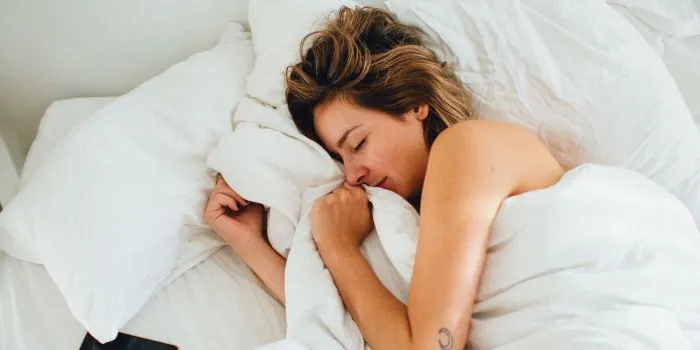How does sleep affect my mental health?
You’re probably aware that good sleep is essential for your physical health. But, do you know how important sleep is for your mental health too? Here I’ll explore how getting regular and good quality sleep can benefit your mental wellbeing and suggest ways to get a better night’s rest.

Why is sleep so important for your mental wellbeing?
Sleep is a time for rest and repair. This is important for all areas of your body. And it’s true for your mental health too. When you sleep, your brain processes your memories and thoughts. This can help your brain ‘focus’ on positive events and can boost your mood during the daytime.
Good sleep can also help to reduce the symptoms of common mental health conditions, such as depression and anxiety. But even if you don’t have a diagnosed mental health problem, quality sleep can help you to feel less irritable, and more positive.
Getting enough good quality sleep can also help you to:
- be less likely to overeat, and more likely to exercise
- cope with stress better
- have the energy you need to enjoy life
How can a lack of sleep affect my mental health?
If you sleep poorly your mental health can be affected. Prioritising good sleep is one way of reducing the likelihood of poor mental health.
If you don’t sleep for long enough or get good quality sleep, your brain can find it harder to process emotions.
A lack of sleep can make it harder for you to feel positive throughout the day.
How can my mental health affect my sleep?
As well as improving your sleep, it’s important to take steps to look after your mental health. If you feel very anxious a lot of the time, you may experience something known as hyperarousal at night-time. This is where you feel too alert to switch off and rest.
Cognitive Behavioural Therapy (CBT) is a helpful tool to tackle anxiety. It helps train the brain to challenge unhelpful or scary thoughts and replace them with more realistic ones.
Similarly, if you have depression then you might find you’re more sleepy than usual in the day time. Taking naps can be useful. But they can make it harder for you to fall asleep at night. So it’s important that you limit them to around 20 minutes, and try to stick to a regular sleep cycle. This makes it less likely you will disrupt your natural body clock (circadian rhythm).
Talking therapies and medication can help improve your symptoms of depression. They can help you rest more at night too.
What can I do to sleep better?
There are many other steps you can take to help improve the length and quality of your sleep. Why not start by keeping a sleep diary to track your sleep quality? This will help to show you if anything you do affects how well you sleep. For example, perhaps using screens late at night, or drinking alcohol in the evening means you don’t sleep so deeply. Then you can try adjusting your routine to see if this helps.
You could also try to reduce your stress levels during the day to help you switch off better at night. You might like to try the following.
- Create a routine and stick to it – such as going to bed at the same time each night.
- Spend 10 to 20 minutes practising active relaxation such as breathing techniques or a short meditation. There are many apps and online aids to help.
- Make time for a form of physical movement you enjoy – this could be dancing, yoga, swimming, or just a stroll in the park.
- Limit alcohol and avoid caffeine at least six hours before bedtime.
If you’re regularly struggling to sleep well, consider seeing your GP. They’ll discuss your sleep habits and give you advice and support. Show them your sleep diary, as this may help them to spot any sleep conditions you might have, so you can get the support you need. If you’re continuing to have sleep problems, you may be referred to a sleep specialist
If you’re worried about your mental health, our direct access service aims to provide you with the advice, support and treatment you need as quickly as possible. You’ll be able to get mental health advice and support usually without the need for a GP referral. Learn more today.
-
Sources Sources
- Sleep and physical health. Sleep foundation.Sleepfoundation.org, updated February 2024
- Mental health and sleep. Sleep foundation. Sleepfoundation.org, updated March 2024
- Sleep and mental health. MIND. mind.org.uk, published December 2024
- Drake C, Roehrs T, Shambroom J, et al. Caffeine Effects on Sleep Taken 0, 3, or 6 Hours before Going to Bed. J Clin Sleep Med. 2013 Nov 15;9(11):1195–1200. doi: 10.5664/jcsm.3170
- Irritability, anxiety and flattened mood. Sleepio. sleepio.com, accessed 13 February 2025
- Sleep and overeating. Sleep foundation. Sleepfoundation.org, updated December 2023
- Kline, C. (2014). The bidirectional relationship between exercise and sleep: Implications for exercise adherence and sleep improvement. American Journal of Lifestyle Medicine, 8(6), 375–379. doi: 10.1177/1559827614544437
- REM Sleep. Encyclopaedia of Britannica.britannica.com, updated February 2025
- Ramos RW, Arvelo ADA, Gomez JP. Hyperarousal in Insomnia. Sleep Medicine, Volume 14, Supplement 1, December 2013, Pages e240-e241. https://doi.org/10.1016/j.sleep.2013.11.581
- Cognitive Behavioural Therapy (CBT). Anxiety UK. Anxietyuk.org.uk, accessed 13 February 2025
- Depression and Sleep. Sleep foundation. sleepfoundation.org, updated May 2024
- Depression in adults, treatment and management. NICE UK. www.nice.org.uk, published June 2022
- Stress and Insomnia. Sleep foundation. Sleepfoundation.org, updated November 2023
- Dworak M, McCarley R, Kim T, et al. Sleep and brain energy levels: ATP changes during sleep. J neurosci, 2010;30(26) 9007 – 9016. doi: 10.1523/JNEUROSCI.1423-10.2010
- Sleep hygiene and napping. Sleep foundation. sleepfoundation.org, updated March 2024
- Tips to improve your sleep. MIND. mind.org.uk, published December 2024
- Sleep diary. Sleep foundation. sleepfoundation.org, updated June 2023
About our health information
At Bupa we produce a wealth of free health information for you and your family. This is because we believe that trustworthy information is essential in helping you make better decisions about your health and wellbeing.
Our information has been awarded the PIF TICK for trustworthy health information. It also follows the principles of the The Information Standard.

More mental health and wellbeing articles
Did you find our advice helpful?
We’d love to hear what you think. Our short survey takes just a few minutes to complete and helps us to keep improving our healthy lifestyle articles.
Legal disclaimer
This information was published by Bupa's Health Content Team and is based on reputable sources of medical evidence. It has been reviewed by appropriate medical or clinical professionals and deemed accurate on the date of review. Photos are only for illustrative purposes and do not reflect every presentation of a condition.
Any information about a treatment or procedure is generic, and does not necessarily describe that treatment or procedure as delivered by Bupa or its associated providers.
The information contained on this page and in any third party websites referred to on this page is not intended nor implied to be a substitute for professional medical advice nor is it intended to be for medical diagnosis or treatment. Third party websites are not owned or controlled by Bupa and any individual may be able to access and post messages on them. Bupa is not responsible for the content or availability of these third party websites. We do not accept advertising on this page.







